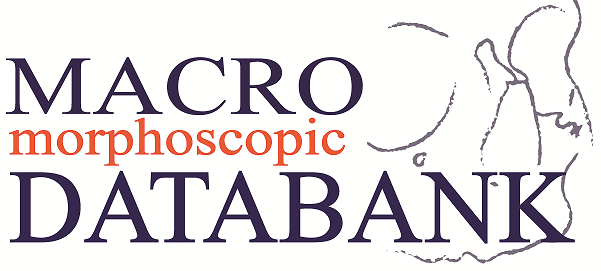
About MaMD Analytical
What is MaMD Analytical?
MaMD Analytical is a freely available software designed to estimate population affinity using human cranial macromorphoscopic (MMS) traits. Built upon procedures outlined by Hefner and Ousley (2014), the software allows users to input MMS scores based on standardized line drawings, ensuring consistency and accuracy in data collection.
By leveraging an artificial neural network (aNN), MaMD Analytical generates classifications with estimated likelihoods, assigning unknown individuals to forensically relevant population groups. Reference samples for these classifications are drawn from the Macromorphoscopic Databank (MaMD), one of the most comprehensive datasets of its kind. Each classification is accompanied by key performance metrics, including sensitivity, specificity, and cross-validated classification accuracies, providing users with critical insights into the reliability of their results.
Data Validation and Contextualization
The MaMD dataset serves as an internal validation set, mitigating concerns about potential biases in data collection introduced by the primary author (JTH). This approach ensures the integrity of the classification process while maintaining transparency in the program's methodology.
Population affinity estimation is inherently complex, requiring flexibility in interpretation and an understanding of the underlying data. The terminology and classification framework used in MaMD Analytical reflect a nuanced approach, aligning with recent discussions on the contextualization of ancestry estimation (Pilloud et al. 2021).
Reference Populations
MaMD Analytical incorporates reference samples from a diverse set of global populations, ensuring a broad and representative dataset for classification. These samples include individuals from African American, American Indian, American Asian, European American, and Southwest Hispanic populations.
Update: MaMD Analytical 1.1.0 (coming soon)
MaMD Analytical 1.1.0 introduces a significant enhancement: downsampling to balance reference populations. One of the challenges in population affinity estimation is the unequal representation of groups in reference datasets. Some populations are overrepresented, which can bias classification results and inflate posterior probabilities.
To address this, version 1.1.0 implements a downsampling technique that reduces the influence of overrepresented groups, ensuring a more even distribution across reference populations. This adjustment enhances the fairness and accuracy of classifications, making MaMD Analytical a more robust and reliable tool for forensic anthropologists.